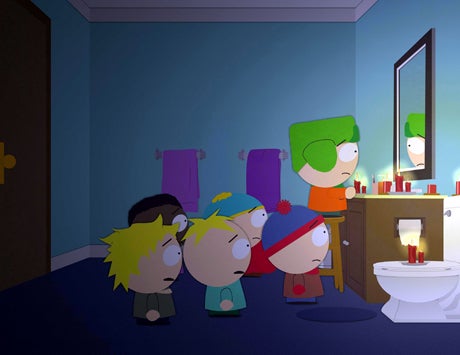mateen cleaves
Banned
- 10,196
- 12
- Joined
- May 11, 2008
you can also just sta in a dark room and stare in the mirror and say bloody mary 3 times, ive done it and nothing happened.Originally Posted by Shawn Is 0n NT
There is a story, passed on from long ago.
About a woman framed, 'Bloody Mary'.
The story is about a queen who killed people for fun, burning them at stakes and slashing them to un-humanly forms. She even killed pregnant women, slashing open their wombs to then murder the baby. She is one ultimate, horror bringing murderer, and ever since her death, she haunts people that say this ritual.
The ritual is this:
Stand in a dark room, no light whatsoever. None. Stand in front of a mirror, make sure no light is present. Say 'Bloody Mary' while turning around in a circle three times, then face the opposite direction of the mirror, then spell 'murder' backwards, which is basically 'red rum.' Notice how red rum can have the same look as crimson blood. After saying that, turn around slowly to find the figure of Mary standing behind you, haunting your presence.









